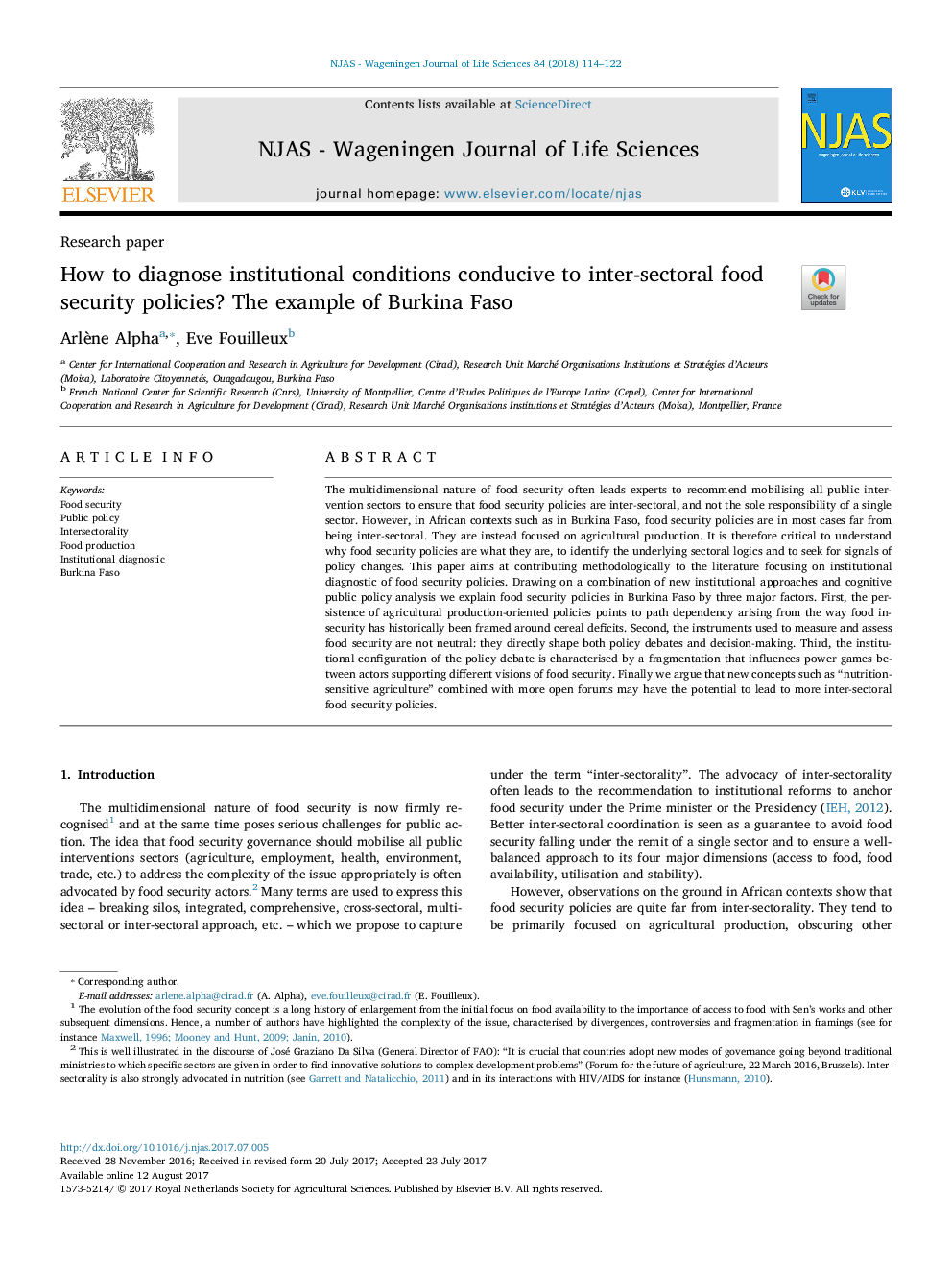ترجمه فارسی عنوان مقاله
چگونگی تشخیص شرایط سازمانی که منجر به سیاست های امنیتی بین سکتور های غذایی می شود؟ مثال بورکینافاسو
عنوان انگلیسی
How to diagnose institutional conditions conducive to inter-sectoral food security policies? The example of Burkina Faso
| کد مقاله | سال انتشار | تعداد صفحات مقاله انگلیسی |
|---|---|---|
| 86343 | 2018 | 9 صفحه PDF |
منبع

Publisher : Elsevier - Science Direct (الزویر - ساینس دایرکت)
Journal : NJAS - Wageningen Journal of Life Sciences, Volume 84, March 2018, Pages 114-122
ترجمه کلمات کلیدی
امنیت غذایی، سیاست عمومی، بینش تولید غذا، تشخیصی غیرمستقیم، بورکینافاسو،
کلمات کلیدی انگلیسی
Food security; Public policy; Intersectorality; Food production; Institutional diagnostic; Burkina Faso;

